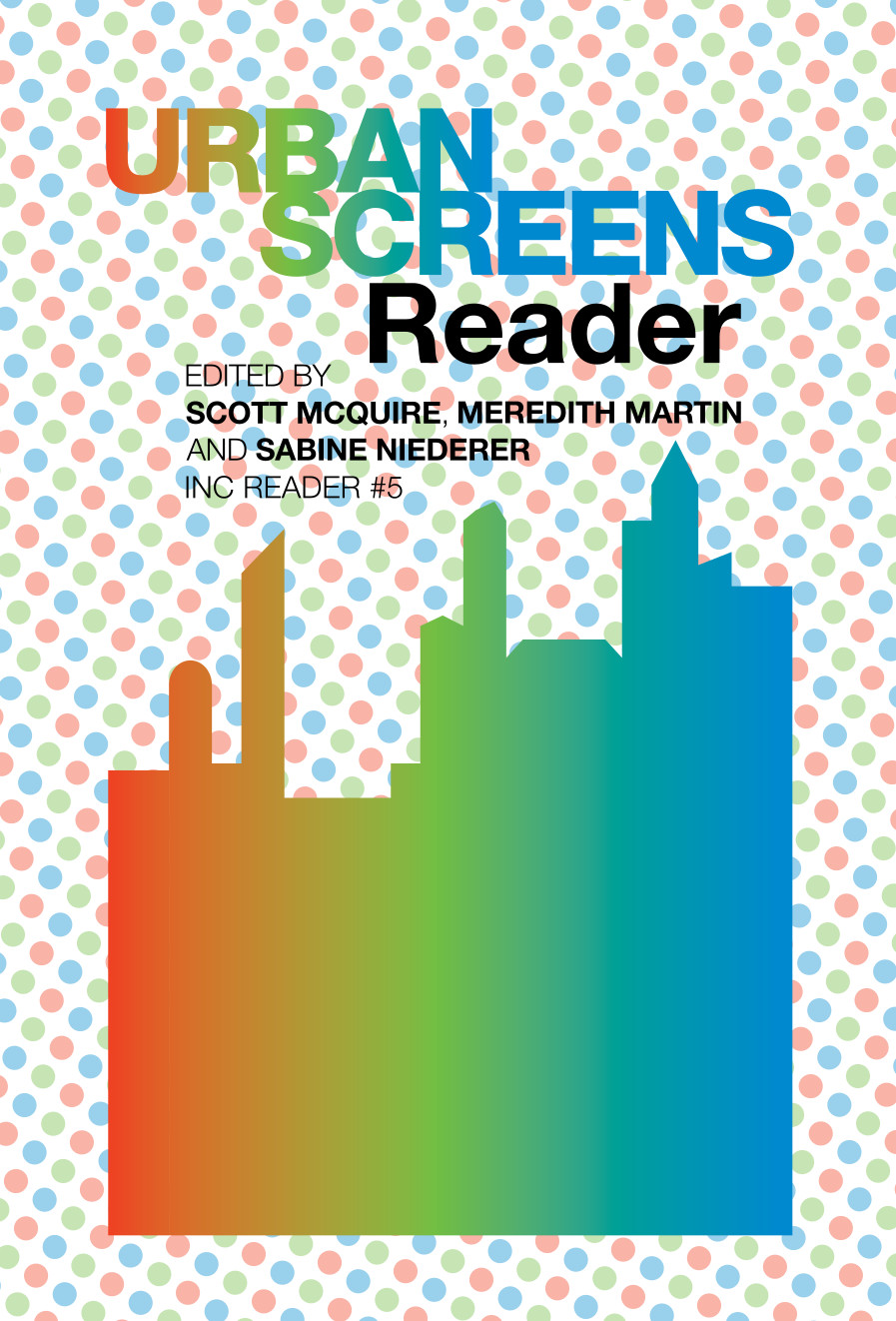Scott McQuire, Meredith Martin, Sabine Niederer (eds.): Urban Screens Reader (2009)
Filed under book | Tags: · city, public space, screen

“The Urban Screens Reader is the first book to focus entirely on the topic of urban screens. In assembling contributions from a range of leading theorists, in conjunction with a series of case studies dealing with artists’ projects and screen operators’ and curators’ experiences, the reader offers a rich resource for those interested in the intersections between digital media, cultural practices and urban space.
Urban Screens have emerged as a key site in contemporary struggles over public culture and public space. They form a strategic junction in debates over the relation between technological innovation, the digital economy, and the formation of new cultural practices in contemporary cities. How should we conceptualize public participation in relation to urban screens? Are ‘the public’ citizens, consumers, producers, or something else? Where is the public located? When a screen is erected in public space, who has access to it and control over it? What are the appropriate forms of urban planning, design and governance? How do urban screens affect cultural experiences?”
Contributors: Simone Arcagni, Alice Arnold, Giselle Beiguelman, Liliana Bounegru, Kate Brennan, Andreas Broeckmann, Uta Caspary, Sean Cubitt, Annet Dekker, Jason Eppink, Ava Fatah gen. Schieck, Mike Gibbons, M. Hank Haeusler, Bart Hoeve, Erkki Huhtamo, Karen Lancel, Hermen Maat, Meredith Martin, Scott McQuire, Julia Nevárez, Sabine Niederer, Shirley Niemans, Nikos Papastergiadis, Soh Yeong Roh, Saskia Sassen, Leon van Schaik, Jan Schuijren, Audrey Yue.
Publisher Institute of Network Cultures, Amsterdam, 2009
ISBN 9789078146100
287 pages
PDF, PDF (updated on 2018-8-10)
Comments (3)Diana Saco: Cybering Democracy: Public Space and the Internet (2002)
Filed under book | Tags: · cyberspace, democracy, politics, public space
The Internet has been billed by some proponents as an “electronic agora” ushering in a “new Athenian age of democracy.” That assertion assumes that cyberspace’s virtual environment is compatible with democratic practice. But the anonymous sociality that is intrinsic to the Internet seems at odds with theories of democracy that presuppose the possibility, at least, of face-to-face meetings among citizens. The Internet, then, raises provocative questions about democratic participation: Must the public sphere exist as a physical space? Does citizenship require a bodily presence?
In Cybering Democracy, Diana Saco boldly reconceptualizes the relationship between democratic participation and spatial realities both actual and virtual. She argues that cyberspace must be viewed as a produced social space, one that fruitfully confounds the ordering conventions of our physical spaces. Within this innovative framework, Saco investigates recent and ongoing debates over cryptography, hacking, privacy, national security, information control, and Internet culture, focusing on how different online practices have shaped this particular social space. In the process, she highlights fundamental issues about the significance of corporeality in the development of civic-mindedness, the exercise of citizenship, and the politics of collective action.
cyberspace, heterotopia, encryption, computer networking, Clipper chip, cyberpunk, ARPAnet, Foucault, personal computers, panopticon, ENIAC, mass media, Information Superhighway, Hacker Ethic, John Perry Barlow, newsgroups, Visible Human Project, Cypherpunks, participatory democracy, Neuromancer
Published by U of Minnesota Press, 2002
ISBN 0816635412, 9780816635412
296 pages
preview


